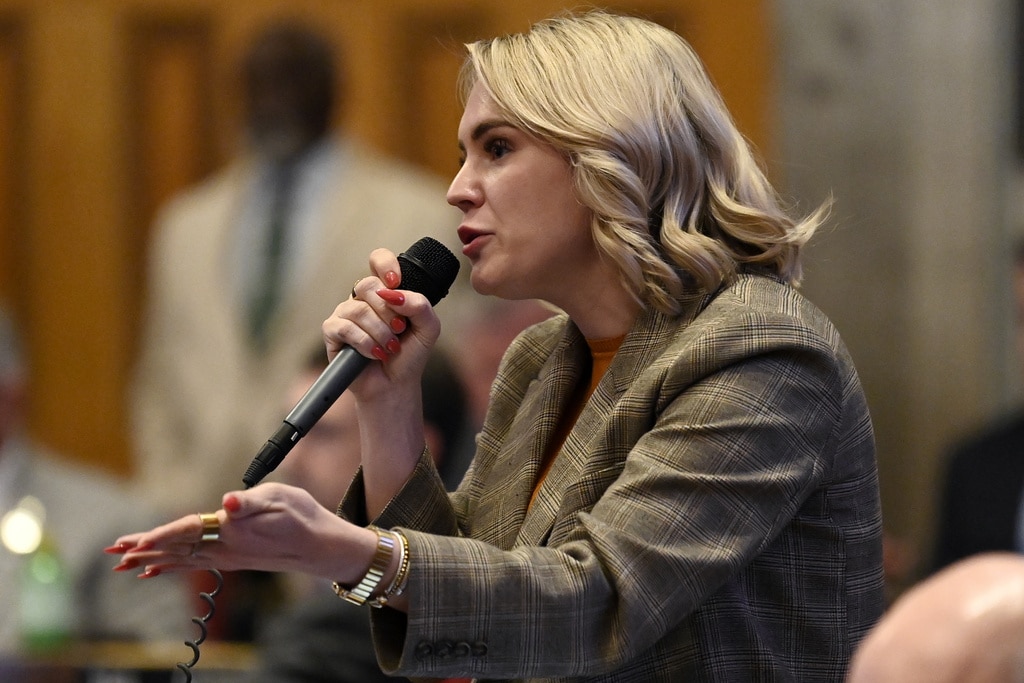Nineteen states have abortion bans or restrictions following the Supreme Court’s overturning of Roe v. Wade (1973) with Dobbs v. Jackson Women’s Health Organization (2022). Some of these states have also tried to restrict abortion information with varying success. A recent case in Tennessee appears to be the first time in recent history that a judge invoked the First Amendment to strike down such a restriction — although the state is appealing this decision (Latham). In 2024, the Tennessee legislature adopted a law making it a criminal misdemeanor to recruit pregnant unemancipated minors in Tennessee to get abortions in other states where abortions were legal.
In July 2025, Judge Julia Gibbons, a senior circuit judge of the 6th U.S. Circuit Court of Appeals, sitting as a district judge for the Middle Tennessee District of Tennessee, enjoined it, finding that “public advocacy, information-sharing, and counseling” are protected speech under the First Amendment. Judge Gibbons relied on Bigelow v. Virginia (1975), a Supreme Court ruling that protected advertising abortion services for legal out-of-state services.
Post-Dobbs, a handful of states have tried with varying success to clamp down on abortion speech — separate from the states that still have “little Comstock laws” on the books that ban abortion and contraception information. Such laws are based on an 1873 federal law named for the post office special agent Anthony Comstock. Its provisions have been ruled unconstitutional by the Supreme Court in cases such as Griswold v. Connecticut (1965) on privacy grounds. But the statute (18 U.S. §1461 and §1462) has never been struck down and it is cited in Project 2025 as something that a new Department of Justice should enforce against providers and distributors of abortion pills through the mail based on the Supreme Court’s decision in Dobbs. (Project 2025, Presidential Transition Project, is a publication by The Heritage Foundation, outlining its vision of “The Conservative Promise” for a new Republican administration.)
Almost two in three abortions are through medication. Groups such as the Abortion Coalition for Telemedicine connect women in states with abortion bans or restrictions with doctors in abortion-friendly states, who are protected by shield laws, to prescribe and mail them abortifacients. (An Abortion Coalition for Telemedince doctor has been indicted in a Louisiana case.) Abortion Coalition for Telemedicine is a nonprofit with a website, but almost all major internet platforms prohibit advertisers from posting paid messages that promote illegal products or services.
In June 2022, the National Right to Life Committee, looking toward Dobbs, released model legislation that would criminalize hosting or maintain a website, providing access to one, or providing an internet service “purposefully directed to a pregnant woman who is a resident of this state, that provides information on how to obtain an illegal abortion.” This language goes against the precedent in Bigelow.
South Carolina
A proposed South Carolina bill introduced in 2022 based on the model law criminalizes aiding, abetting, or conspiring with someone to procure an abortion and 1) providing abortion-related information by phone, Internet, or another mode of communication, 2) hosting or maintaining a website, providing access to an website, or providing an internet service with abortion-related information, and 3) providing a referral to an abortion provider. The bill has not passed.
Idaho
When the Supreme Court issued its Dobbs decision, Idaho already had a bill applying to public schools and universities prohibiting the use of public funds to provide or promote abortions. In September 2022, the University of Idaho warned employees about potential criminal liability for promoting abortion or contraception. Later, the university tried to walk back its guidance.
In 2023, Idaho enacted a law criminalizing assistance to a minor who leaves the state to access abortion care. The law had portions that prohibit providing information to minors – but as of today, those portions have been blocked. In Matsumoto v. Labrador, an Idaho attorney and two advocacy organizations sued Idaho’s attorney general to block the law. They argued that the law burdens their right to expressive association under the First Amendment and prohibits a substantial amount of protected expressive speech. In November 2023, a federal district court granted the request to temporarily block the law. The Idaho attorney general has appealed.
Oklahoma
In July 2022, Oklahoma’s Metropolitan Library System instructed its employees to “avoid using the word ‘abortion’” and not help patrons look up information with a penalty of $10,000, jail, and termination of employment. The library system later said librarians can provide factual information about what an abortion is and help with scientific research on the topic.
Low Value
One issue for the courts is whether abortion information is “low-value" speech with less constitutional protection. Low value speech includes commercial speech likely to incite illegal action. This could mean online, TV, radio, podcast, print advertisements, pay-per-click ads, and mass emails for abortion services, abortifacients, or specific providers. Anti-abortion activists have already targeted paid advertising on social media platforms. As more states pass restrictions on abortion information, and with commercial speech vulnerable to intrusion, there will likely be more First Amendment challenges to abortion advertising restrictions.
Amy Sohn is the award-winning author of The Man Who Hated Women: Sex, Censorship, & Civil Liberties in the Gilded Age.

